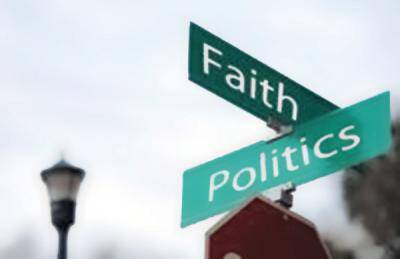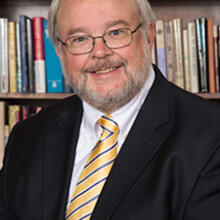President Obama recently said, “If you watch the nightly news, it feels like the world is falling apart…. The world’s always been messy. We’re just noticing now in part because of social media.” Excuse me, but the problem is not increased awareness. The world is broken and bloody in ways far beyond “messiness” as usual.
From August:
• The Islamic State showcased on the web the execution of American journalists, as they kill or exile Christians, Yazidis and Shiites who do not share their perversion of Islam;
• On our border, young people risk their lives to flee violence and deprivation, becoming excuses for leaders to oppose or delay reform of a broken immigration system;
• In Africa, the Ebola virus takes the lives of thousands and threatens many more. Boko Haram kidnaps schoolgirls, attacks churches and has killed 5,000 people;
• The conflict in the Holy Land worsens since Hamas missiles targeted Israeli civilians and Israeli responses killed more civilians than combatants in Gaza.
These crises are visible to us mostly when they touch Americans. The horrific murder of American journalists exposed for many the brutality of ISIS in Syria and Iraq. Children crossing our border made violence and despair in Central America visible. The illness of American caregivers brought the Ebola epidemic to our attention. Dysfunctional institutions exacerbate these crises. Where is the United Nations in the face of war crimes, aggression and epidemics? Where is Congress?
In responding to ISIS, President Obama committed truth, saying, “We don’t yet have a strategy.” Having left his administration, Hillary Clinton said Obama’s caution, “Don’t do stupid stuff,” is not a global strategy. But stupid choices on Iraq, delay on immigration and absence of a just peace for Israelis and Palestinians contributed to these humanitarian disasters.
For difficult choices, Catholic moral tradition offers ethical criteria: protection of human life, dignity and rights; priority for the poor and vulnerable; pursuit of peace and the common good. Catholic teaching offers traditional just war principles that resist, restrain and guide use of military force. Even a pope named Francis said, “It is licit to stop the unjust aggressor” and added: “With what means can they be stopped? These have to be evaluated.”
Concerning legitimate authority, the church rightly urges international authorization and warns against unilateral action. In our own nation, Congress prefers to second guess rather than to debate and decide. Have we learned the dangers in a democracy of military action without full debate, shared sacrifice and a commitment to pay the price? A volunteer army and war weariness do not relieve us of the duty to consider fully the moral, human and financial costs of action…or inaction.
On last resort, President Obama seems to be the personification of “last resort.” Elected to end wars, not start them, he has grudgingly decided that national security, humanitarian obligations and lack of viable alternatives require military action.
On probability of success, the mission needs to be clear, the means outlined and “success” defined. Despite the courage, sacrifice and skills of our military, World War II was our nation’s last clear major military victory. U.S. interventions in Korea, Vietnam, Lebanon, Somalia, Libya, Afghanistan and Iraq have often led to stalemate, tragedy or disappointment.
On matters of discrimination and proportionality, our nation should resist the temptation to use tactics and weapons that minimize U.S. casualties without equal commitment to safeguard civilian lives. Drone strikes and bombing campaigns have moral, as well as military, limits.
Believers should raise ethical questions, but faith requires more. In these sad places, beyond the horrible loss of life is the terrible loss of hope. Fear and anger feed a cycle of violence and despair. The suffering people in Iraq and Syria, in Ukraine and Africa and on our borders are not issues, but sisters and brothers. They deserve our assistance, solidarity and defense of their lives and rights. All of us need the hope that the world that is “falling apart” can, with their courage and our action, become a more just and peaceful place.
Pope Francis defined our task, “Today, amid so much darkness, we need to see the light of hope and to be men and women who bring hope to others.”








